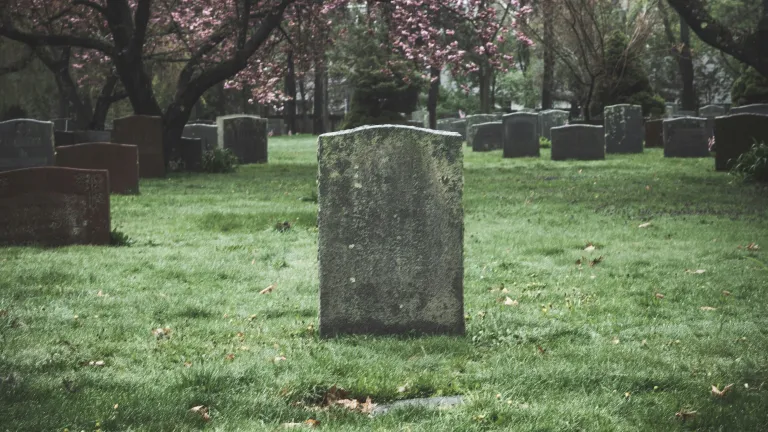Why Do You Teach That People Aren’t Conscious in Heaven or Hell at Death?

The Bible teaches that the dead are not conscious in heaven or hell but are in a state of “sleep,” awaiting a future resurrection when Christ returns. Rather than promising immediate afterlife awareness, Scripture consistently presents resurrection—not death—as the moment when human beings receive life, judgment and their ultimate reward.
The Bible does not say they do, as commonly thought. While the belief that people remain aware and go immediately to heaven or hell at death is deeply ingrained in many religious traditions, a careful reading of Scripture tells a different story—one that offers a more coherent and hope-filled view of God’s plan for humanity. Scripture reveals that the dead are not now conscious in an afterlife but instead enter a state described as “sleep,” awaiting a future resurrection when they will be judged and receive their reward or punishment (Job 14:12-15; Daniel 12:2-3; John 5:28-29).
The Bible consistently describes death as a state of unconsciousness. Ecclesiastes 9:5 plainly says, “For the living know that they will die; but the dead know nothing” (emphasis added throughout). A few verses later, it adds, “There is no work or device or knowledge or wisdom in the grave where you are going” (verse 10). Thus, death is a complete cessation of conscious existence. The dead are not alive and aware in heaven, hell or anywhere else—they are simply dead.
This fact is reinforced by the way both Jesus and the apostles speak of death. When Lazarus died, Jesus said plainly, “Our friend Lazarus sleeps, but I go that I may wake him up” (John 11:11). His disciples misunderstood, thinking Lazarus was merely resting. So Jesus clarified, “Lazarus is dead” (verse 14). This equivalence between death and sleep appears repeatedly throughout Scripture, particularly in Paul’s writings. For example, 1 Thessalonians 4:14 speaks of “those who sleep in Jesus,” and 1 Corinthians 15 repeatedly refers to the dead as having “fallen asleep.” Just as sleep involves unconsciousness and the passing of time without awareness, so too does death.
Moreover, John 3:13 tells us, “No one has ascended to heaven but He who came down from heaven, that is, the Son of Man who is in heaven”—at least the latter part of this verse having been written by John after Jesus returned to heaven. If human beings went to heaven at death, this statement would be untrue. Even King David, “a man after God’s own heart,” is said to be dead and buried, and “David did not ascend into the heavens” (Acts 2:29, 34). Hebrews 11, which recounts the faith of numerous righteous men and women, concludes by saying that “all these, having obtained a good testimony through faith, did not receive the promise” (Hebrews 11:39). They await a future resurrection.
The resurrection is central to the biblical hope of eternal life. The consistent teaching of Scripture is that the dead will rise at the return of Jesus Christ. Paul wrote in 1 Corinthians 15, often called the “resurrection chapter,” that Christ is “the firstfruits of those who have fallen asleep” and that “as in Adam all die, even so in Christ all shall be made alive” (verses 20–22). The dead are not made alive immediately at death, but will be resurrected in the future. Paul emphasizes that this resurrection will occur “at His coming” (verse 23). This is the moment when believers receive immortality—not before.
Likewise, the judgment of the wicked is not portrayed as something happening immediately after death. Revelation 20 describes a future time when the dead will be resurrected and judged “according to their works” (verse 12). Those whose names are not written in the Book of Life are cast into the lake of fire—called “the second death” (verse 14). The punishment of the wicked, then, is not eternal conscious torment beginning at death, but total destruction following a coming judgment. Malachi 4:1-3 says, “The day is coming, burning like an oven . . . [when] all who do wickedly will be stubble . . . They shall be ashes under the soles of your feet.”
Some point to Jesus’ words to the thief on the cross in Luke 23:43—rendered in the New King James Version as “Assuredly, I say to you, today you will be with Me in Paradise”—as proof of immediate reward after death. However, the original Greek manuscripts contained no punctuation, the placement of the comma after “you” being a later translation decision. It could just as well have been placed after “today,” yielding, “Assuredly, I say to you today, you will be with Me in Paradise”—a promise made that day, not a statement about timing. Jesus did not go to heaven later that day but was buried in the earth for three days (Matthew 12:40), then telling Mary Magdalene after He rose from the grave, “I have not yet ascended to My Father” (John 20:17). He was not in Paradise the day He died, and neither was the thief.
Various other passages used to argue for instant afterlife following dying should also be understood in light of what the rest of the Bible has to say on the matter.
Ultimately, the teaching that the dead go immediately to heaven or hell cannot be reconciled with the full testimony of Scripture. The biblical teaching presents death as temporary unconsciousness, and the future resurrection as the time when human destiny is realized. The fact is, the dead are not rejoicing or suffering in a disembodied afterlife anywhere, but are totally unaware, awaiting the fulfillment of God’s plan of salvation through Jesus Christ. This is the hope the Bible truly offers—resurrection to life in the age to come.





